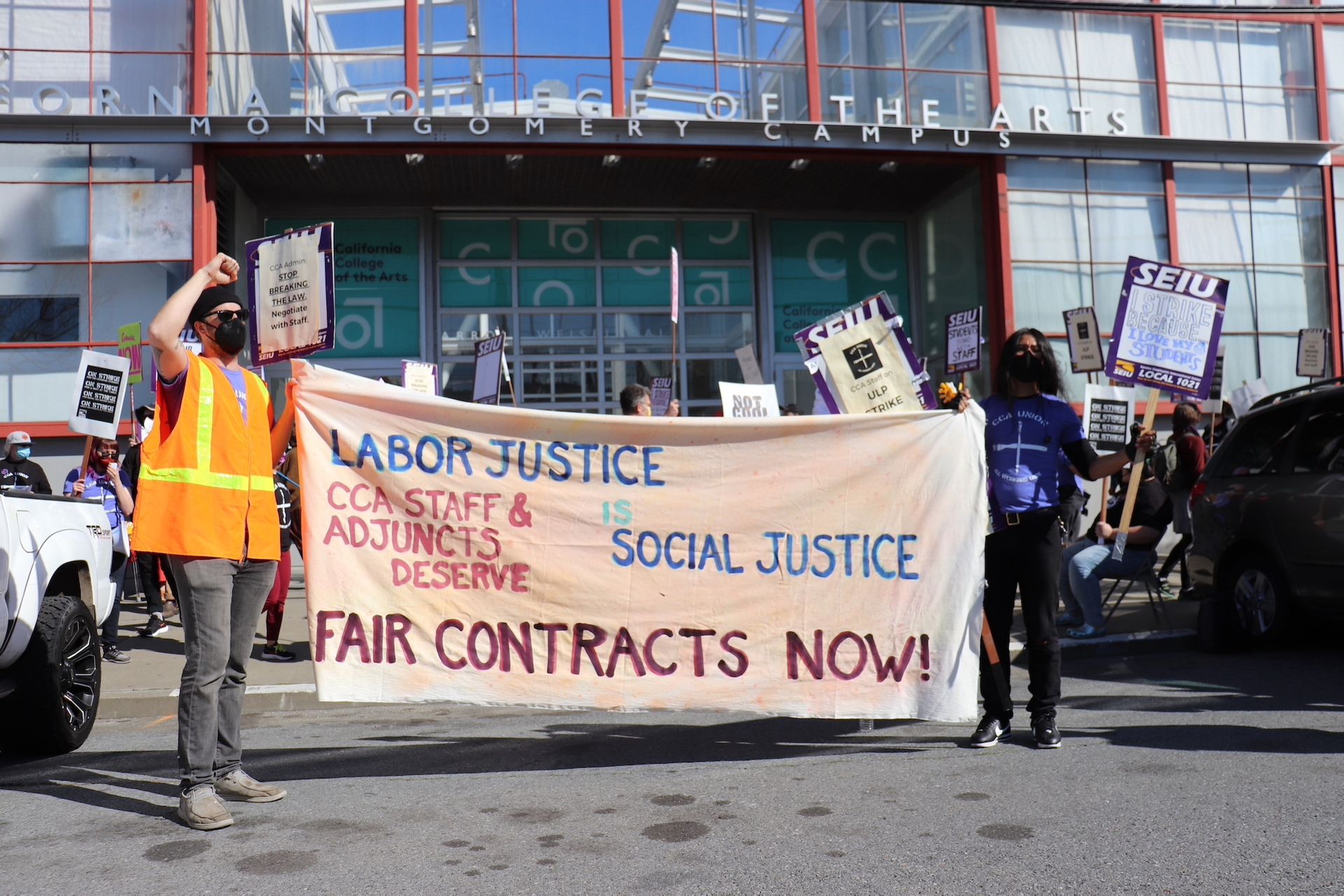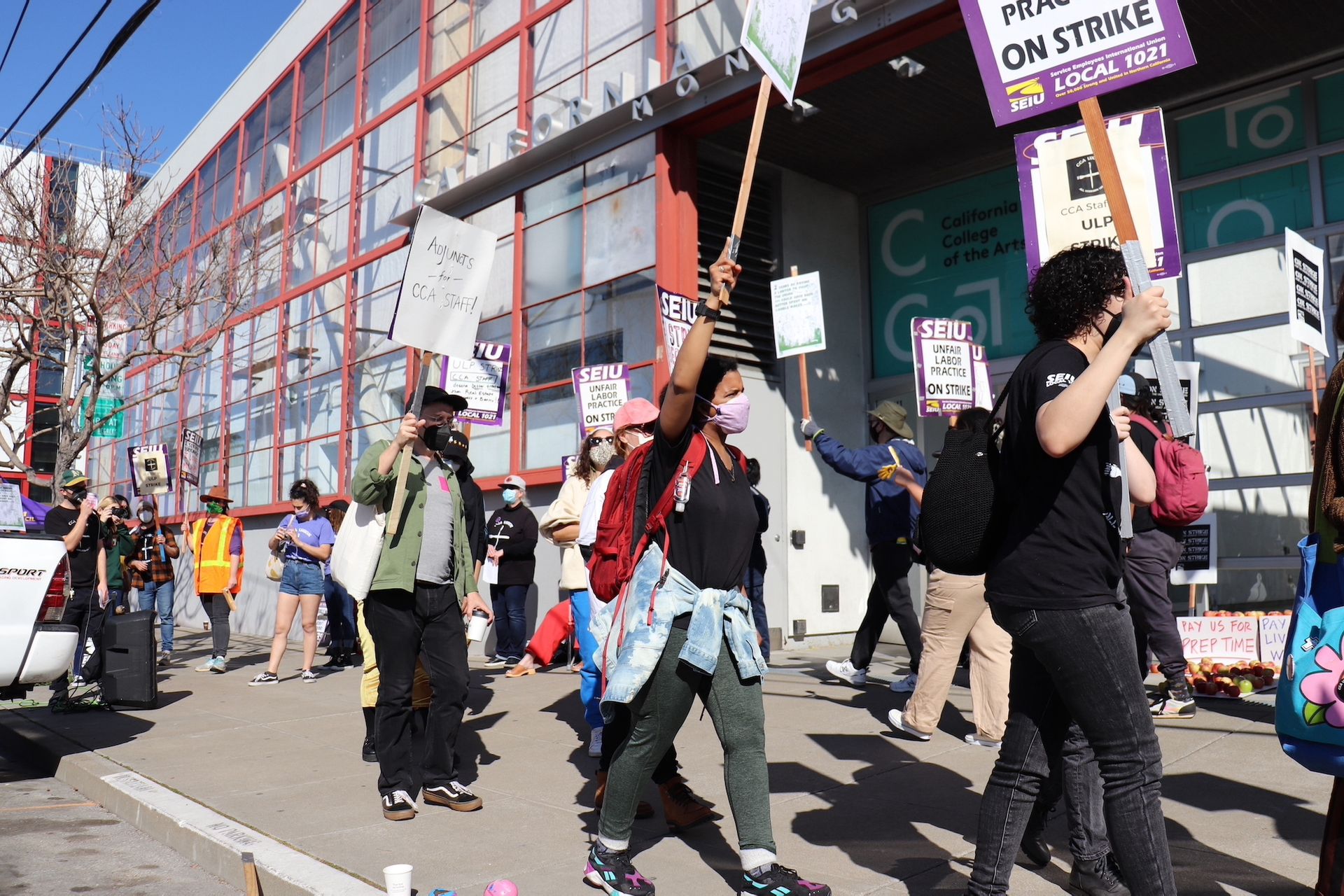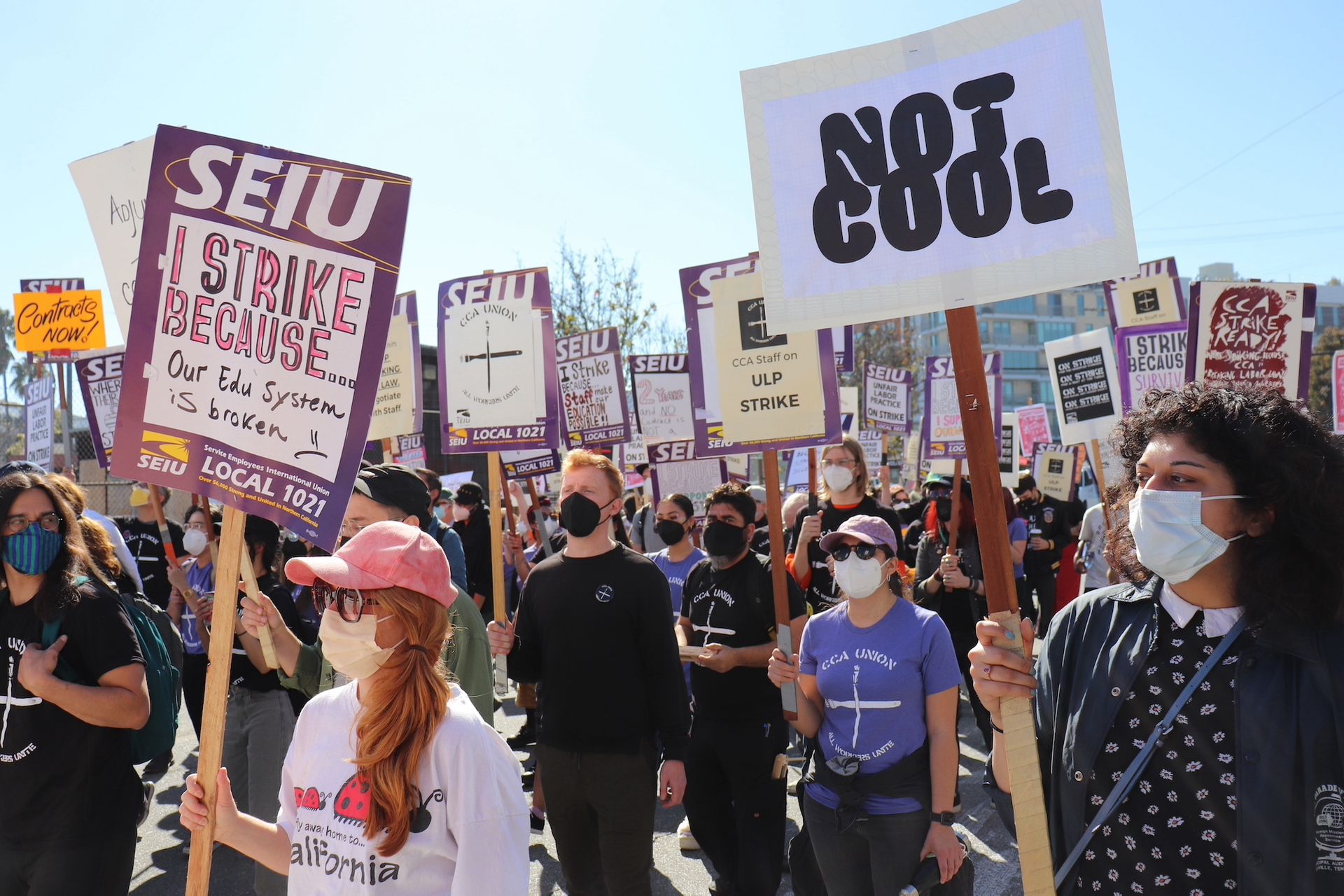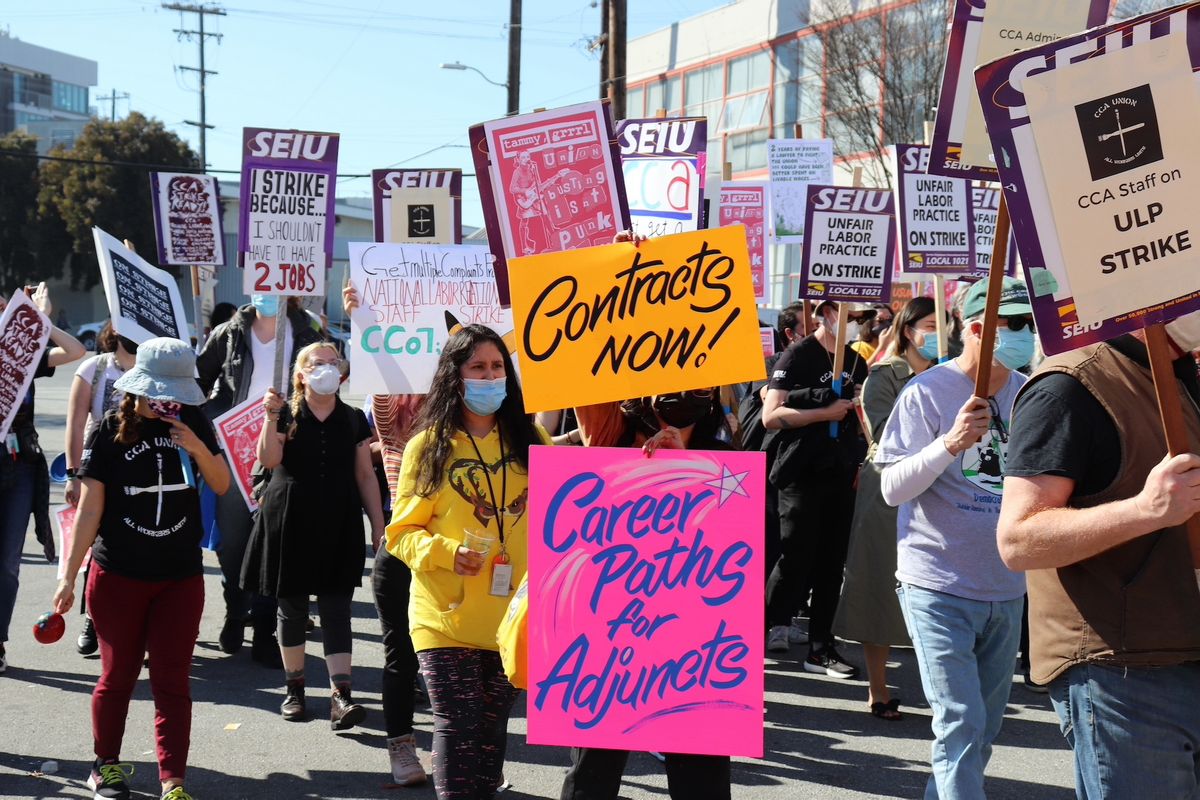Staff at the California College of the Arts (CCA) went on strike on both the school's San Francisco and Oakland campuses this week. Jennie Smith-Camejo, a spokesperson for the Service Employees International Union (SEIU) Local 1021, estimates more than 200 people took part in protests on 9 February, the second day of the strike. She notes that members of school's faculty, adjunct professors and the CCA student union held a strike in solidarity with staff. Students provided baked goods to people on the picket line.
“I was there to show support as well as take pictures and videos, this is a historic moment and it was important to me to capture those moments,” says Tariq Stone, a first-year student and member of the student union. “It felt great to be surrounded by passionate people who all shared the same goal, it’s a sense of community and understanding that most people don't experience that often.”
The CCA staff is represented by SEIU Local 1021 and on 13 December 2021 97% of union members voted to authorise the strike. While they hoped to hold the strike sooner, CCA staff and SEIU members say they had to delay their efforts until this week due partly to the surge of Covid-19 cases spurred by the Omicron variant.

Striking staff and students protest at the San Francisco campus of the California College of the Arts Photo courtesy the Service Employees International Union Local 1021
The strike will continue through 11 February, with the picket line shifting between the school’s campuses in San Francisco (10, 11 February) and Oakland (9 February). While the school officially remains open, because a majority of staff are on strike as well as adjunct faculty taking part in the sympathy strike, classes have been cancelled by professors honouring the picket lines. The union says the strike was brought on in large part due to unfair labour practices, and revolves around negotiations over better and living wages, job security and benefits. It is the first strike at a private college in California since 1976.
“We’re asking for the self-sufficiency wage, which we’ve calculated as 65% of the average median income for San Francisco—that is what is on the table right now, and that is for our lowest paid workers,” says Brian Woods, a studio manager at CCA who is also a member of the union’s bargaining committee. “We have a range proposal that is designed to raise the floor. So, anybody that can’t afford to live where they work, effectively our proposal would help them do that.”
In April 2019, staff at CCA voted to form a union under SEIU Local 1021, and in October of that year the newly formed union began the bargaining for a new contract, a process that has continued until now. Meanwhile, faculty at CCA formed their own union with SEIU Local 1021 in 2017 and their first contract expired in 2020. Adjuncts at the school formed their own union, also with SEIU Local 1021, in 2014. Over the last year and half unionised staff and adjuncts at the school have been trying to negotiate new contracts.
Woods notes that he and other CCA staff and faculty were promised overtime opportunities, or the option to be compensated for doing overtime work, but then were told that there was no overtime. “My hours were cut and many others were told that they can no longer be eligible for overtime, so we took a cut to our expected pay,” he says.
“By our count, we have around 200 adjuncts teaching this semester and at least 120 of them have committed to the strike—they're not teaching, either in person or virtually,” says Randy Nakamura, an adjunct faculty member in the MFA design department and member of the adjunct bargaining committee. “That number grew very rapidly in the last couple of weeks. It was very gratifying to see that. All of the adjuncts that we’ve been talking to understand what’s at stake.”

Striking staff and students protest at the San Francisco campus of the California College of the Arts Photo courtesy Service Employees International Union Local 1021
While the pandemic presented some difficulties when it came to negotiations, according to the union the CCA administration had been meeting almost monthly prior to November 2022. Since then there has been a three-month lull in the bargaining process for a new adjunct faculty contract. Bargaining sessions to arrive at a new staff contract were held on 6 and 7 February, according to a CCA spokesperson.
Randy Nakaurma, an adjunct faculty member who has taught in the design department at the school since 2015, described the negotiation process as “very difficult”, adding, “They’ve stalled. They’ve stonewalled us. They treat us very, very unprofessionally at points in the process. It’s been very frustrating to deal with this process, because you want to at least feel like you’re accomplishing something for every session, and often we accomplish nothing. We are trying to do our best to find areas of compromise, but CCA doesn’t like compromise.”
The strike has garnered support not only from students and faculty and students—today 99 CCA faculty members signed a letter of support for the strike—but also 15 local elected officials in the Bay Area.
Despite the tensions between staff and CCA administration over the bargaining process, the school’s leadership is “ready and willing to negotiate as frequently as needed to achieve a fair and mutually beneficial collective bargaining agreement with our unionised staff”, says David Owens-Hill, the school’s director communications. “The college has a comprehensive proposal on the table that provides wage increases for our valued staff while also maintaining our ongoing commitment to student financial aid and a financially sustainable future for the college.”

Striking California College of the Arts staff and students march in San Francisco Photo courtesy Service Employees International Union Local 1021
The union and administration are awaiting the outcomes of several unfair labour practice violations that are pending hearings at the National Labor Review Board (NLRB). In the meantime the school has published a collective bargaining fact check document to address claims made by the union.
“At a time when we are making rapid progress in negotiations and have reached agreement on so many items, a strike benefits no one—not our staff, not our faculty and certainly not our students, who have just returned to fully in-person classes for the first time in nearly two years,” Owens-Hill says.
The CCA union and staff remain committed to negotiating a fair contract in which their terms are met.
“All we want is a good faith bargaining process. And we just want a fair contract right now, as soon as possible,” says Nakamura. “We want a living wage. We want better benefits for our members. We want job security. It’s pretty fundamental. These are basic things. These are not controversial. These are not extreme or excessive. It’s pretty basic, fundamental rights, which every worker should have.”
The demonstrations at CCA come amid a wave of labour organising at institutions and universities across the US. The move toward collective bargaining at art organisations, already well underway before Covid-19, has accelerated as the pandemic has exposed the precarity of working in the art industry.


